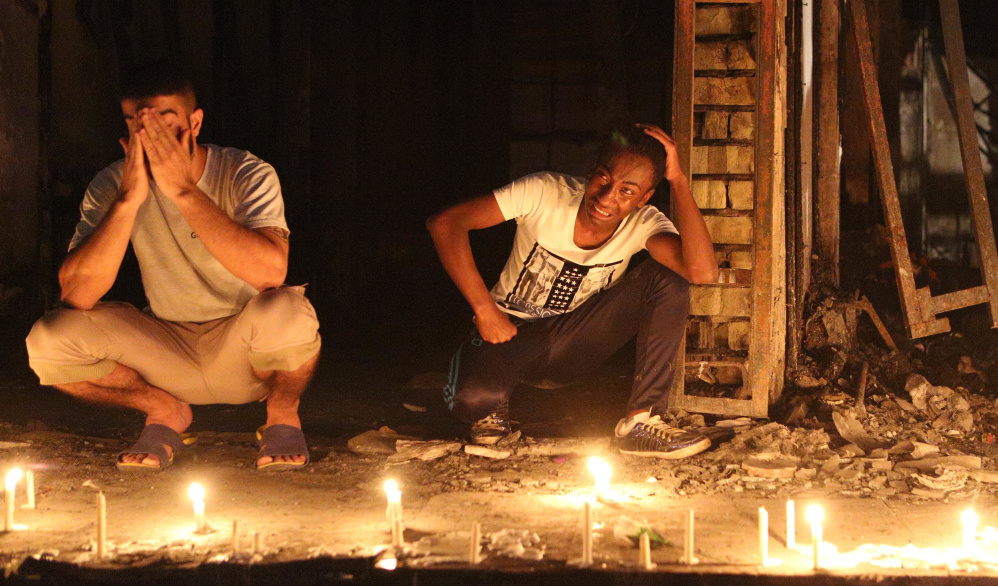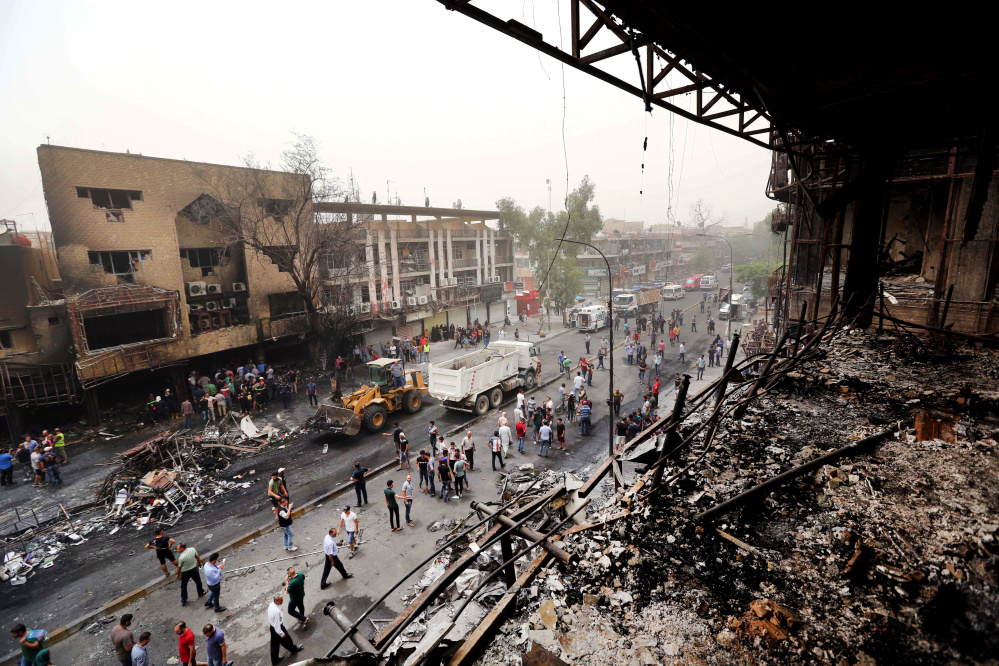Massacres attributed to the Islamic State have struck on four continents this year, reflecting how the appeal of the group’s ideology is growing even as the territory it controls in Iraq and Syria has receded, according to experts.
The slaughter of civilians in three large attacks in the past week alone – in Istanbul on Tuesday, in Dhaka, Bangladesh, on Friday, and in Baghdad on Sunday – suggest that militant actions beyond the caliphate’s borders are taking place more frequently and not necessarily with any overt direction from some caliphate headquarters. Even more alarmingly, a growing number of attacks, starting with those in Paris and Brussels, were conducted by gangs of assailants, instead of by an individual gunman.
“What’s striking to me about the Istanbul and Dhaka attacks is that both weren’t done by lone wolves at all,” said Bruce Riedel, a former CIA counterterrorism official and analyst of al-Qaida and the Islamic State, now at the Brookings Institution. “These were done by teams of terrorists working with a very thought-through attack plan. I call them wolf pack attacks. They are rapidly becoming the Islamic State’s signature.”
In Sunday’s Baghdad attack, at least 121 people died in a bomb attack on a busy shopping street. At least 212 people injured in the bombing and the ensuing fire in Baghdad’s Karrada neighborhood, according to a senior official from Iraq’s Health Ministry, who spoke on the condition of anonymity because he was not authorized to release the information. The death toll is expected to climb further, as many suffering from burn injuries are in critical condition, he said.
The Islamic State asserted responsibility for the attack, saying it had targeted Shiite Muslims. The blast set off a huge blaze that engulfed two small shopping centers, leaving those inside trapped on the roof and screaming for help as firefighters attempted to rescue them.
The attack comes a week after the Iraqi government declared that it had expelled Islamic State militants from their stronghold of Fallujah, 45 miles west of the capital. The militants have lost about half the territory they once controlled in the country and have called for attacks during Ramadan.
While the core of the caliphate in Iraq and Syria has been pummeled by coalition airstrikes and by armies and militias fighting them on the ground, Islamic State soldiers have spread throughout the Middle East and far afield. Attacks in Turkey, Bangladesh, Nigeria, Afghanistan, Libya, Tunisia, Saudi Arabia, Egypt, Kuwait and several European capitals, and the lone wolf attacks in Orlando, Florida, and San Bernardino, California, show its potency as an ideology.
Rep. Adam B. Schiff, D-Calif., the ranking Democrat on the House Permanent Select Committee on Intelligence, said on CBS’ “Face the Nation” Sunday that the Islamic State is “vicious and adaptive” in what he called a “global terrorism campaign.”
“It’s very much losing territory but at the same time, expanding its global presence,” he said.
U.S. intelligence officials say battlefield setbacks in Iraq and Syria appear to have driven the Islamic State’s leaders to speed up their timeline for attacks abroad. Many intelligence officials and terrorism experts believe that recent terrorist strikes in Paris, Brussels, Turkey and Bangladesh are a reflection of that strategy.
“We judge that (the Islamic State) will intensify its global terror campaign to maintain its dominance of the global terrorism agenda,” CIA Director John Brennan said in testimony before the Senate last month.
While the Islamic State had been primarily focused on building and defending its caliphate, the group has long expressed ambitions for attacking targets outside the Middle East. The jihadists’ English-language magazine, Dabiq, regularly includes discussions of plans to conquer Rome and other cities of symbolic importance, in addition to capturing all lands that were once part of the Islamic empires of history.
The group’s aspirations date back to the group’s earliest days, when it was called al-Qaida in Iraq and led by Jordanian terrorist Abu Musab .
“We perform jihad here while our eyes are upon al-Quds [Jerusalem]. We fight here, while our goal is Rome,” famously said, in a line frequently cited by the Islamic State’s current leadership.
The group’s highly regimented structure includes a unit dedicated to facilitating attacks on foreign soil, U.S. and European officials say. Former Islamic State fighters now in custody have told investigators that the unit, called EMNI or AMNI, has been active in Europe for more than a year.
Secretary of State John Kerry has frequently said that attacks, whether conducted by or inspired by the Islamic State, are a sign of the group’s desperation as the territory it controls in Iraq and Syria is chipped away. Nevertheless, the group apparently remains rooted enough that it recently issued its own caliphate dinar currency, embossed with the words Islamic State.
But increasingly, it’s the idea of the Islamic State, rather than the group’s control of any territory, that has taken on greater significance.
“As Dhaka and Istanbul demonstrate, the idea is being translated into a tactic that is much more dangerous than inspiring a single individual to go out and carry out an attack,” Riedel said. “As horrific as Orlando was, had it been four guys in the bar, think how much more complicated it would have been.
“It’s making the challenge of defeating it more and more urgent, as well as more and more difficult.”
Send questions/comments to the editors.




Success. Please wait for the page to reload. If the page does not reload within 5 seconds, please refresh the page.
Enter your email and password to access comments.
Hi, to comment on stories you must . This profile is in addition to your subscription and website login.
Already have a commenting profile? .
Invalid username/password.
Please check your email to confirm and complete your registration.
Only subscribers are eligible to post comments. Please subscribe or login first for digital access. Here’s why.
Use the form below to reset your password. When you've submitted your account email, we will send an email with a reset code.